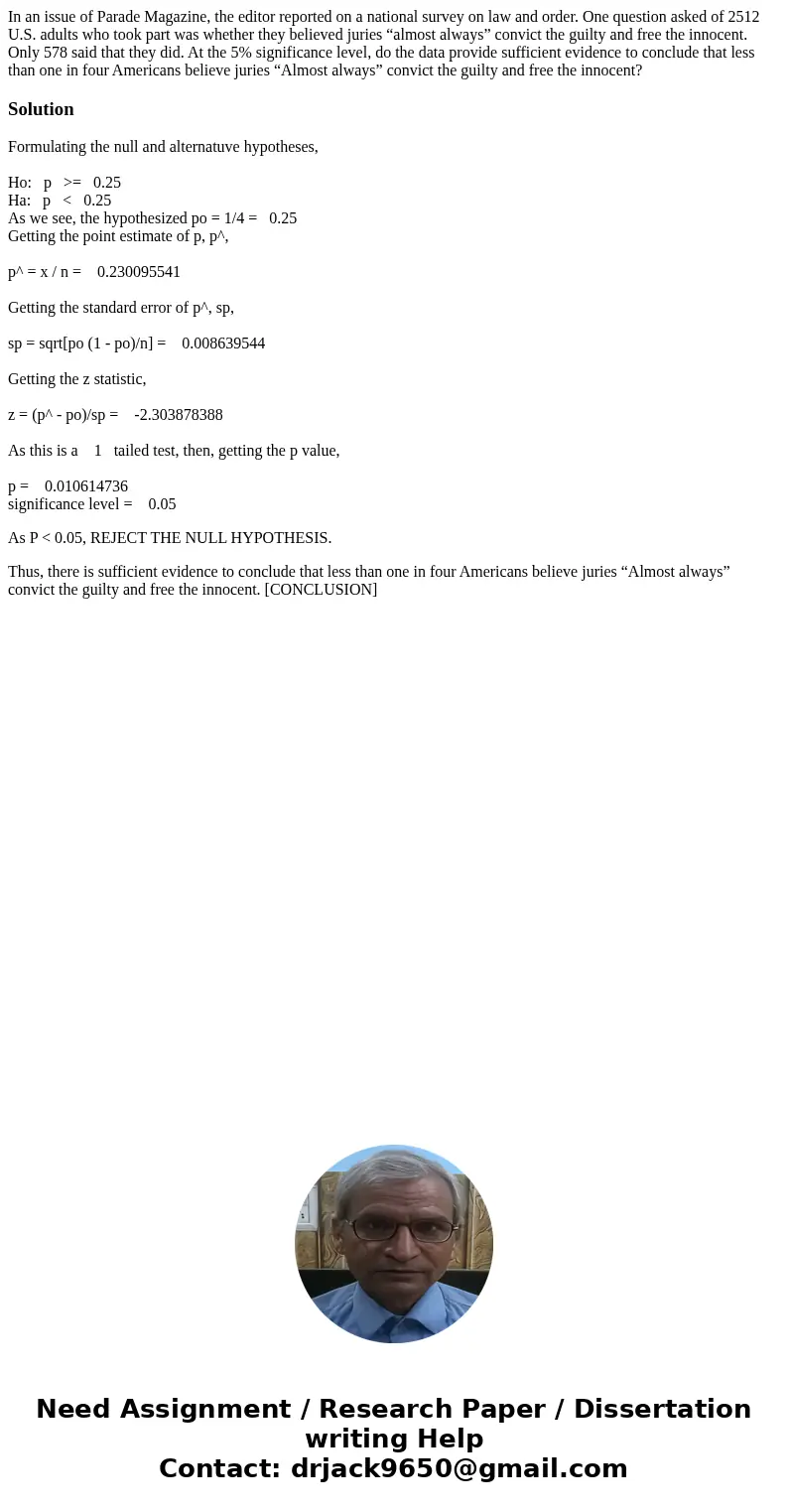In an issue of Parade Magazine the editor reported on a nati
In an issue of Parade Magazine, the editor reported on a national survey on law and order. One question asked of 2512 U.S. adults who took part was whether they believed juries “almost always” convict the guilty and free the innocent. Only 578 said that they did. At the 5% significance level, do the data provide sufficient evidence to conclude that less than one in four Americans believe juries “Almost always” convict the guilty and free the innocent?
Solution
Formulating the null and alternatuve hypotheses,
Ho: p >= 0.25
Ha: p < 0.25
As we see, the hypothesized po = 1/4 = 0.25
Getting the point estimate of p, p^,
p^ = x / n = 0.230095541
Getting the standard error of p^, sp,
sp = sqrt[po (1 - po)/n] = 0.008639544
Getting the z statistic,
z = (p^ - po)/sp = -2.303878388
As this is a 1 tailed test, then, getting the p value,
p = 0.010614736
significance level = 0.05
As P < 0.05, REJECT THE NULL HYPOTHESIS.
Thus, there is sufficient evidence to conclude that less than one in four Americans believe juries “Almost always” convict the guilty and free the innocent. [CONCLUSION]

 Homework Sourse
Homework Sourse